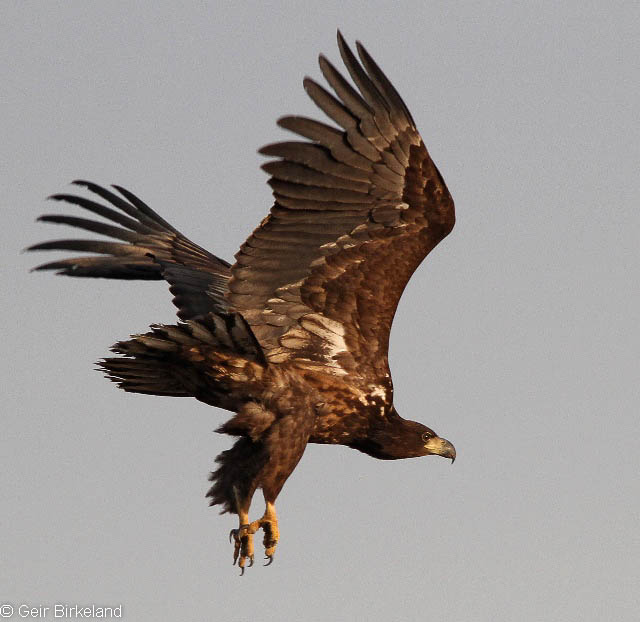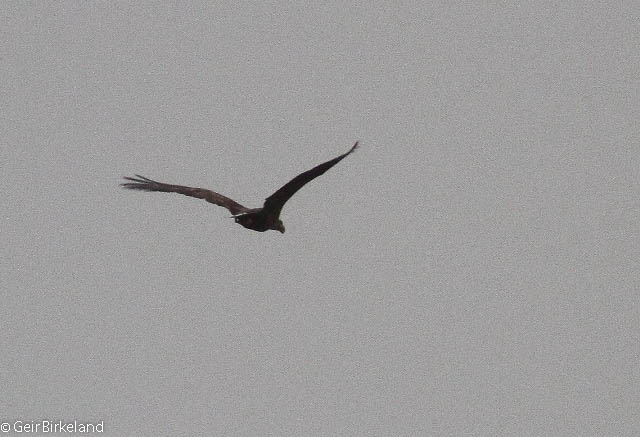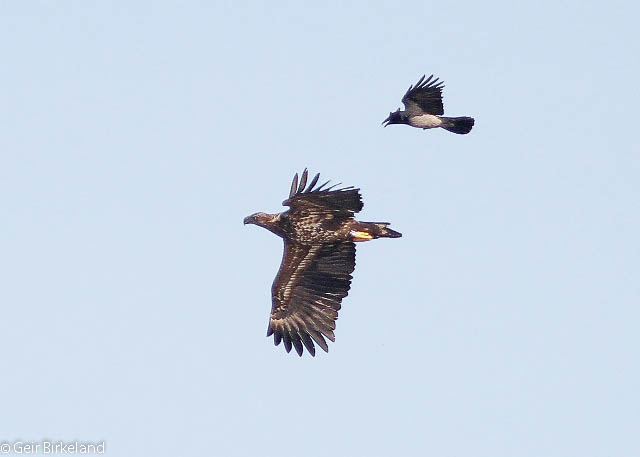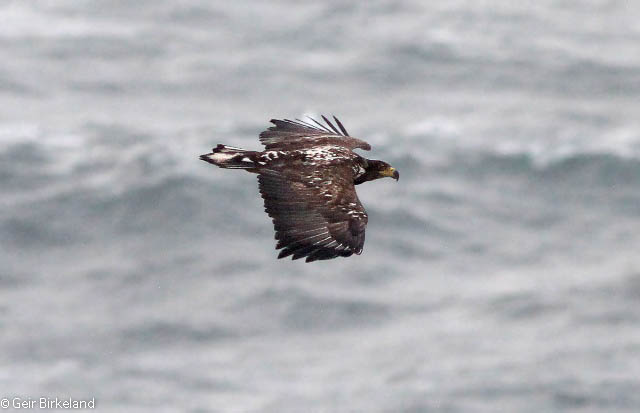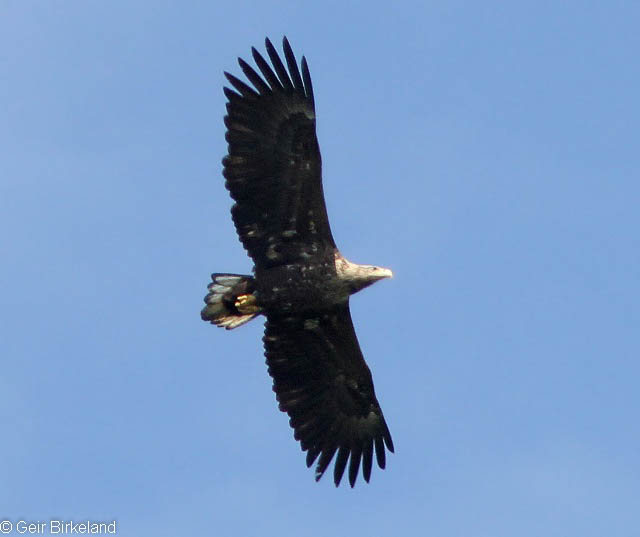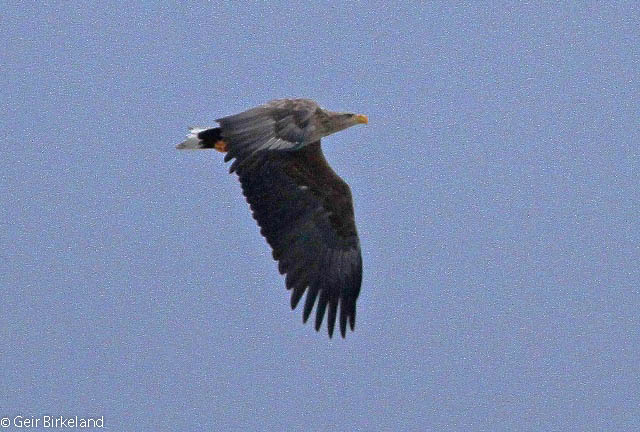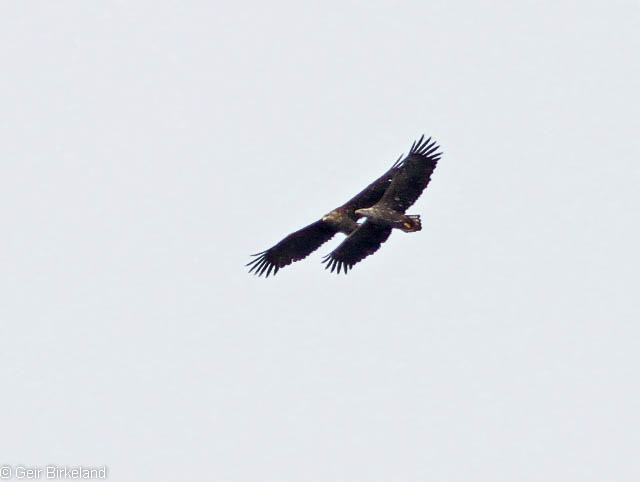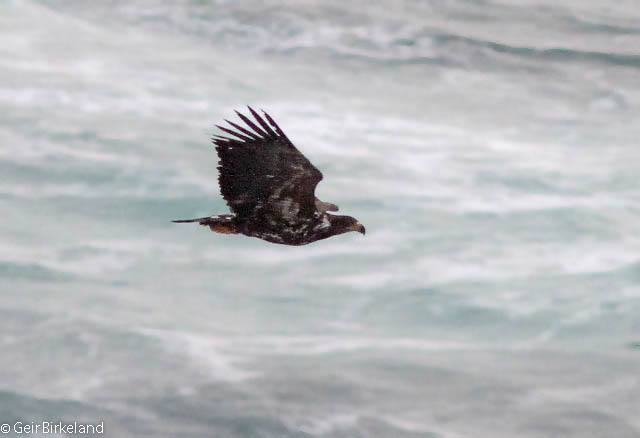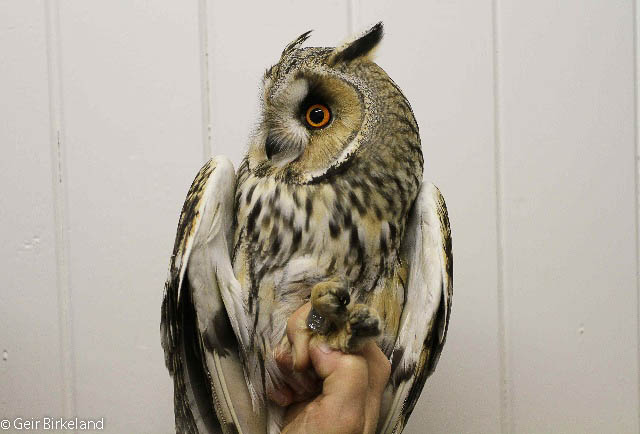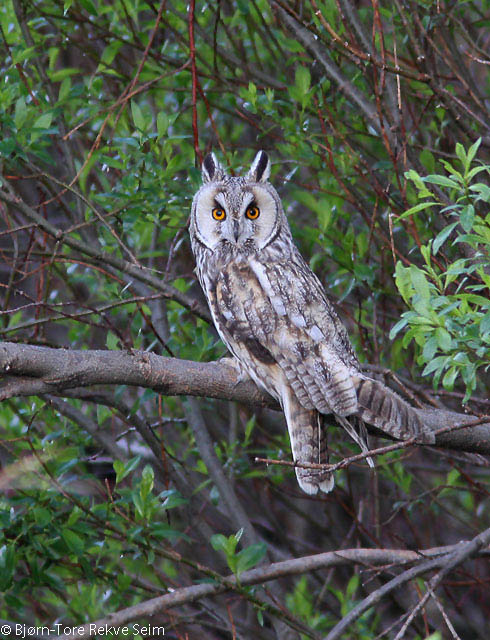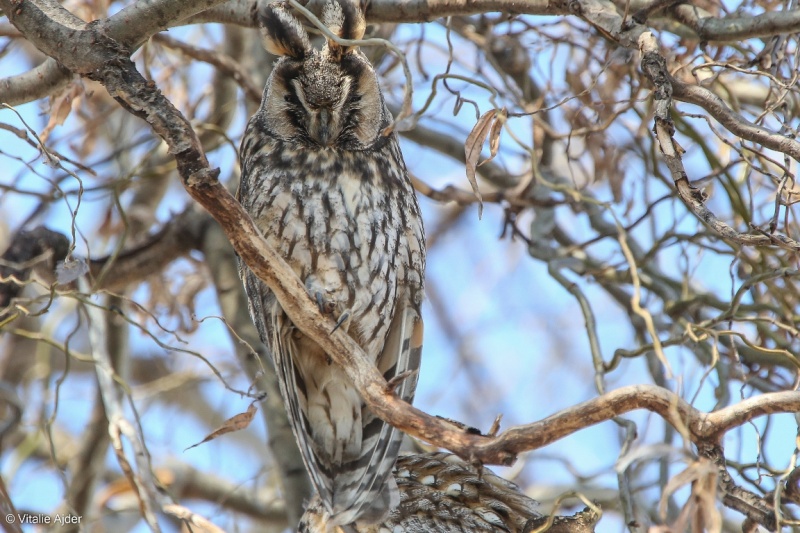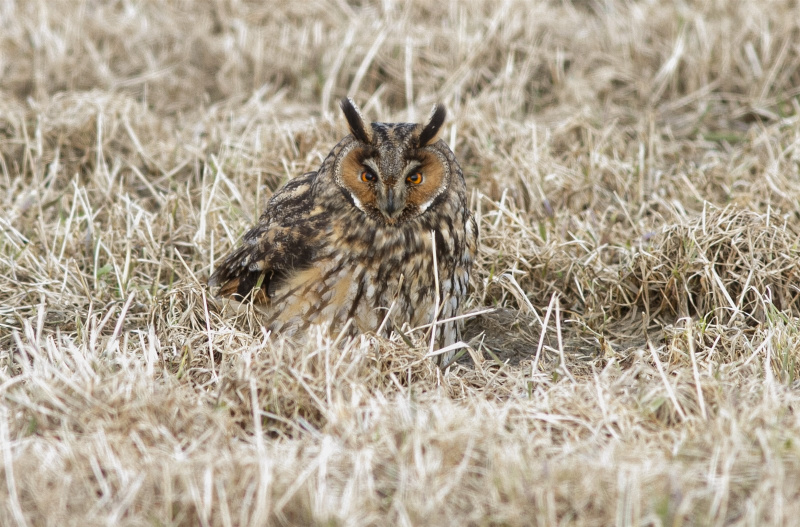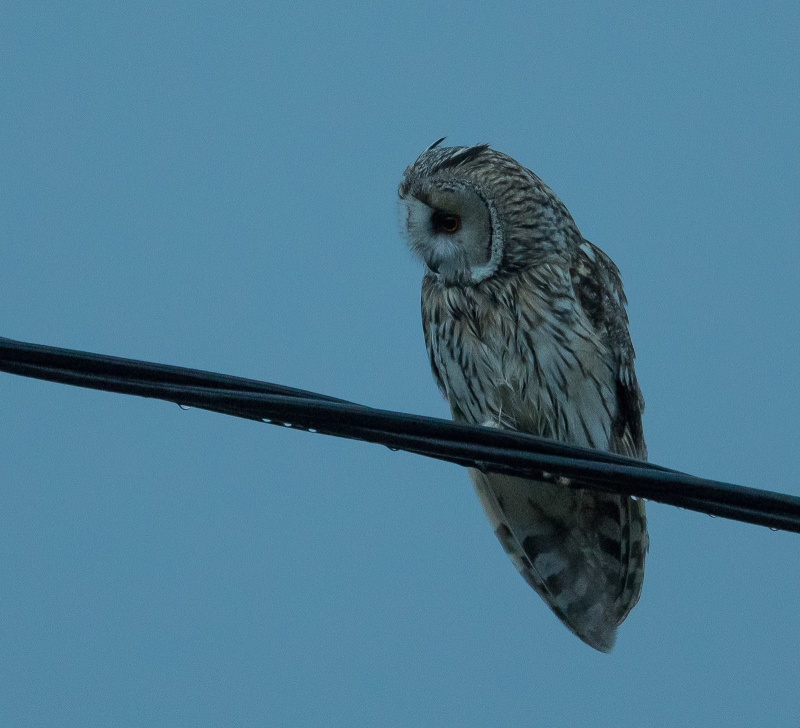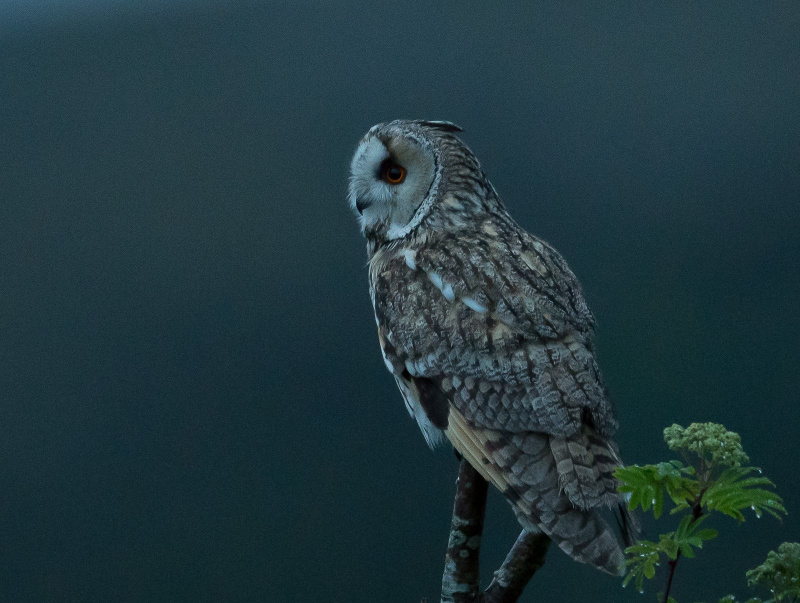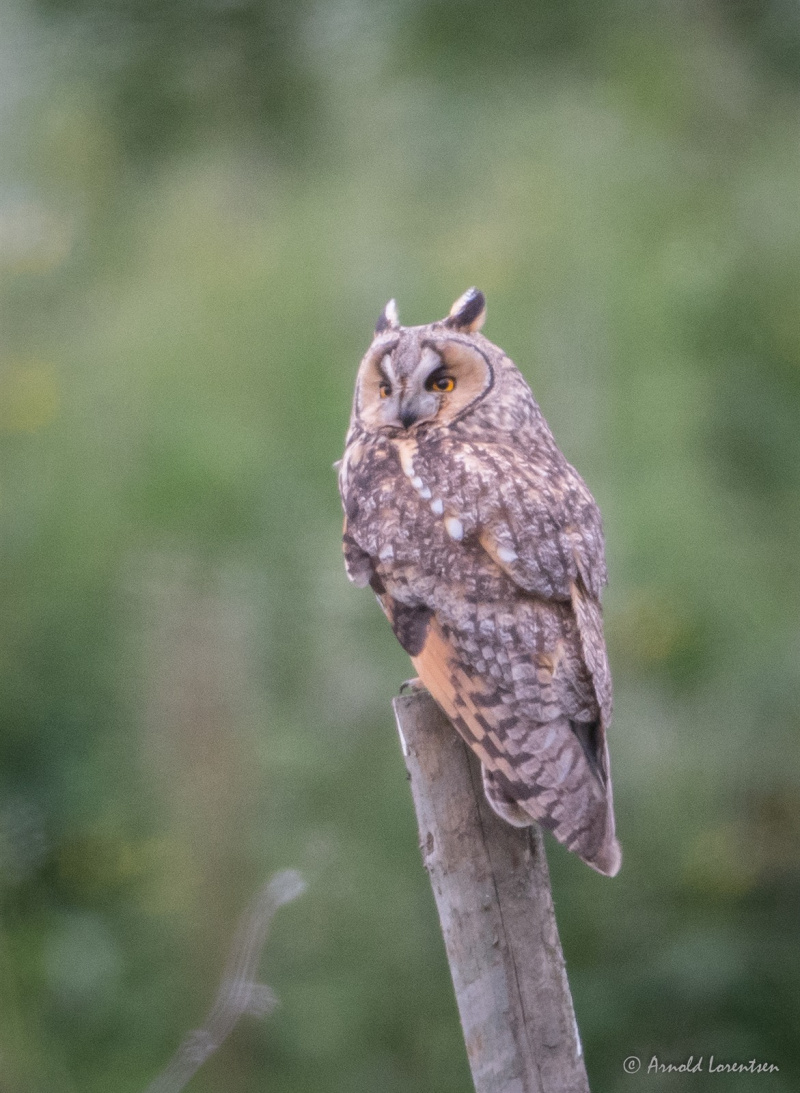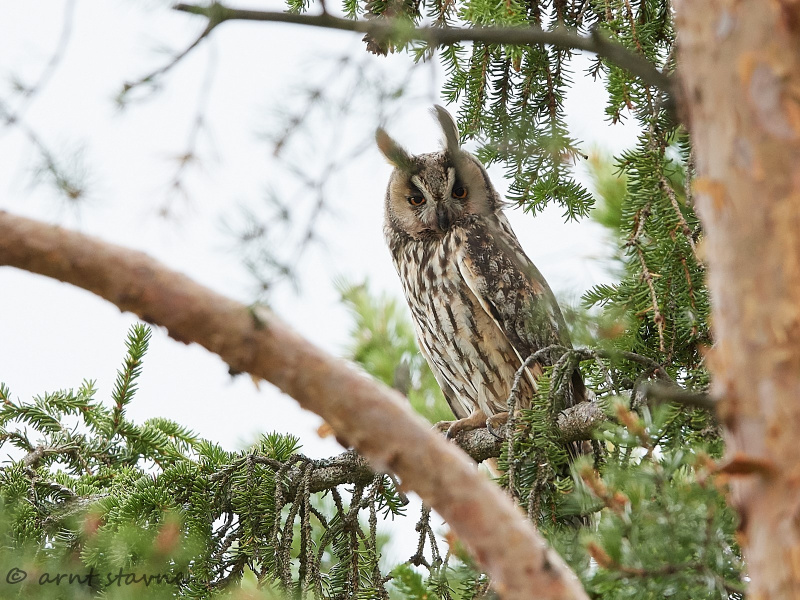White-tailed Eagle (Haliaeetus albicilla)
Long-eared Owl (Asio otus)
Diagnostic flight profile with rectangular, uniformly broad and deeply fingered wings. Long neck and short, wedge-shaped tail. Bill very heavy and tarsus unfeathered. Adults with pale, yellowish head and white tail. Juveniles uniformly brown with dark tail. Females bigger than males. Flight pattern: Long sequences of shallow wing-beats, and only limited glides (as opposed to Golden Eagle).
Sound:A sharp high-pitched clear "klyytt klyytt klyytt klyytt" is often heard. Uttered with some variation in pitch and timbre. Sometimes more raucous and not so high pitched.
Contact call:
Distribution:
Wikipedia: map (se also Xeno-canto below)
Ecology:Birdlife ecology
Links:
Observation.org Latest observations
Image search Flickr NB! May give other species
CCSounds:Recorded by Martin Miethke,http://www.xeno-canto.org ,CC license
A medium sized, brown and long-winged owl, with long ear-tufts and deep orange eyes. Only half the size of Eagle Owl. Differs from the more similar Short-eared Owl by darker (orange) eyes, longer ear-tufts and heavily streaked lower belly. In flight, note paler wing-tips (only finely barred, not tipped black).
Sound:Song a series of very deep, monotonous "hooooo"s, quite widely spaced. Uttered about once every 2-3 seconds. Sometimes rises in pitch, but with each "hoo" being constant. Rich repertoire of calls. Other sounds include; a nasal "eeeeeaaa" reminiscent of Collared Dove, nasal mewing and bill clicking.
Song, call:
Distribution:
Wikipedia: map (se also Xeno-canto below)
Ecology:Birdlife ecology
Links:
Observation.org Latest observations
Image search Flickr NB! May give other species
CC
 English
English Albanian
Albanian
 Armenian
Armenian
 Bulgarian
Bulgarian
 Catalan
Catalan
 Croatian
Croatian
 Czech
Czech
 Danish
Danish
 Dutch
Dutch
 Finnish
Finnish
 French
French
 Georgian
Georgian
 German
German
 Greek
Greek
 Hungarian
Hungarian
 Italian
Italian
 Latvian
Latvian
 Lithuanian
Lithuanian
 Macedonian
Macedonian
 Norwegian
Norwegian
 Polish
Polish
 Portuguese
Portuguese
 Romanian
Romanian
 Russian
Russian
 Sami : Lule sami
Sami : Lule sami
 Sami : North sami
Sami : North sami
 Sami : South sami
Sami : South sami
 Scientific names
Scientific names
 Serbian
Serbian
 Spanish
Spanish
 Swedish
Swedish
 Ukrainian
Ukrainian


